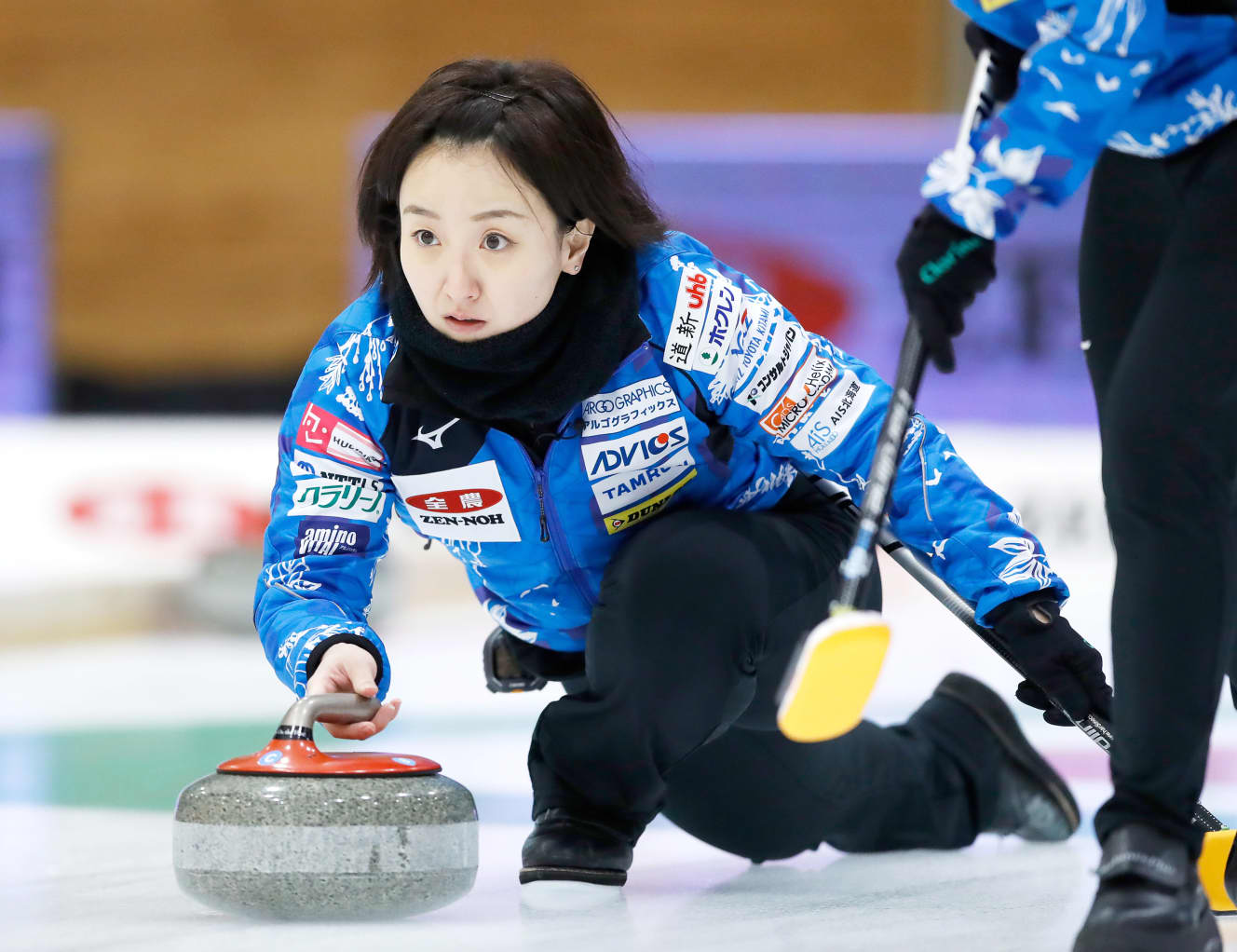The passionate faces of the “curling girls on ice” as they compete for a place on the Japanese national team

The opening of the Beijing Winter Olympics is just five months away. From September 10 to 12, the women’s curling team of Japan will compete in Wakkanai, Hokkaido.
The team that will be competing is Rocco Solare (Kitami City, Hokkaido), who won the bronze medal at the 2006 Pyeongchang Olympics and dominated the world with their “Mogumogu Time. The first team to win three out of five games will become the national team in this simple but exciting competition. Nobuto Tsuruga, a member of the men’s curling team at the 1998 Nagano Olympics, said.
“Loco Solare is a team that has competed in many international competitions, including the PyeongChang Olympics, and is probably the most experienced in Japan. Since the PyeongChang Olympics, Mari Motohashi (35) has been replaced by Kotomi Ishizaki (42) as a reserve, but the other four main members have not changed. I think we have a very high level of maturity as a team.
The most notable player for Rocco Solare is Satsuki Fujisawa (30), the “skip” (the player who throws the seventh and eighth throws out of the eight). Mr. Tsuruga continues.
“Fujisawa is a player who likes to play offense. Scoring three or more points in one end is called a ‘big end,’ and it puts a lot of pressure on the opponent. The winning pattern for Rocco Solare is to take control of the game by scoring a big end in the beginning, and then skillfully escape.
Fujisawa is not the only player to watch. There are also the “Yoshida sisters,” Chinami Yoshida (30) and Yurika Yoshida (28), who also played in the PyeongChang Olympics. Soichiro Takeda, a sports writer, said.
Soichiro Takeda, a sports writer, said, “One of the reasons why Loco Solare is so strong is that their lead player, Yurika Yoshida, never makes a mistake. One of the reasons why Rocco Solare is so strong is that Yurika Yoshida, the lead player (the first and second pitcher), never makes a mistake. If I were to compare it to baseball, it would be like having a solid starting pitcher.
On the other hand, Chinami Yoshida, the older sister and third player (who throws the fifth and sixth pitches), is a person of explosive power, and as was the case in the PyeongChang Olympics trials four years ago, she is strong on the big stage, whether it is the Olympics or a game where the right to represent the country is at stake.
So, it is by no means certain that Rocco Solare will be the representative. Their opponents, Hokkaido Bank, also have a strong lineup. The team is led by third baseman Kaho Onodera (29). Mr. Tsuruga explains.
“Onodera’s weapon is his ‘take-out,’ where he flicks away the opponent’s stone. She is probably the fastest stone thrower among Japanese women. If you ask her to throw a shot that can change the aspect of a match with a single throw, I think there is no one better than Onodera.
The lineup of the Rocco Solare team has remained almost the same for the past three years, which is rare in the curling world. It is more common to replace members in search of new chemistry. The Bank of Hokkaido also went through a trial and error process to create the team they have today. Mr. Takeda, who is mentioned above, tells us.
“Hokkaido Bank’s skip Ayumi Ogasawara (42) retired from the team the season after the Pyeongchang Olympics. She is a legend in the women’s curling world and has been a major player since the team’s inception. It was a turning point for the Bank of Hokkaido.
After her, Sayaka Yoshimura (29) became a skip. For about two years after Yoshimura became the skip, it was difficult for us to win, but she continued to fight without giving up. I think that experience has led to the strength of our team now.
Although the odds are slightly in favor of Loco Solare, it could go either way. However, the winner still has the next challenge ahead of them. The winner, however, still has the next challenge.
“Even if Japan wins, it doesn’t mean that they will be able to compete in the Olympics. Even if you win a spot on the Japanese team, it doesn’t mean you will be able to compete in the Olympics. Since Japan didn’t win a spot in the Olympics at the World Championships in May, you have to go through the final qualifying round in December, which is at an unprecedentedly high level.
The final qualifying round is at an unprecedentedly high level, with strong nations such as South Korea, which won the silver medal at the PyeongChang Olympics, Great Britain, which placed fourth, and Germany, which beat Japan in the World Championships in May. Up to seven countries are scheduled to participate in the final qualifying round, and in order to go to the Olympics, we need to be in the top three.
There is no doubt that it will be a tough match. It will be a tough game, no doubt about it, but the team that survives this fierce battle to determine Japan’s national team will surely win the ticket to the Olympics.
The battle of the “curling girls” begins.


From the September 24, 2021 issue of FRIDAY
Photo: Jiji Press, Afro